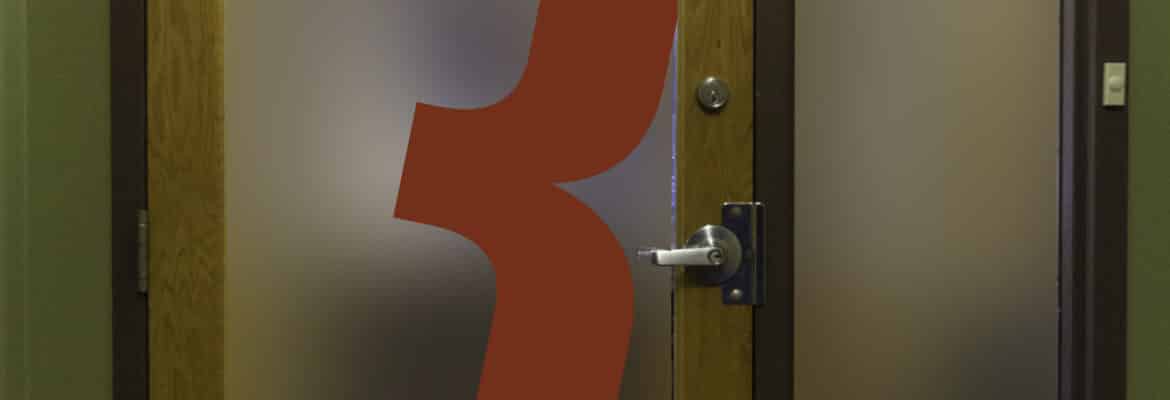(Updated 01/05/2024)
- Birds often collide with windows due to their reflective characteristics, mistaking it for a clear flight path.
- Birds have different visual perceptions compared to humans, and reflections on glass can appear as open space to them.
- Window films, such as opaque films, patterned films, and one-way transparent films, can make windows more visible to birds and prevent collisions.
- Other methods to deter bird collisions include using decals and stickers, bird tape, and netting or screens placed near the windows.
So, birds can’t tell the difference between the sky and the glass windows of your house or business, right? This can be a real problem, with birds accidentally flying into windows. It’s important to find ways to keep these birds safe without messing up how your home looks. Let’s dive into some options that can help you do just that. Each solution has its own perks and things to think about.
We’re going to check out different methods that not only stop birds from hitting your windows but also help in taking care of wildlife in general. By exploring these ideas, you can make a choice that’s good for both the birds and your home. Let’s work together to make sure your morning peace isn’t ruined by a bird hitting your window. We’re here to find a way to prevent these accidents and help our feathered friends stay safe.
Why Do Birds Collide with Windows?
Birds hit windows because of how they see the world and the way windows reflect the surroundings. There’s some cool science behind why this happens.
Basically, birds don’t see windows the way we do. To them, the reflections look like more sky or trees, so they think they can fly right through. It’s a bit like when we walk into a glass door we didn’t see.
Insights from Recent Studies
Recent studies shed light on the reasons behind bird-window collisions, highlighting the need for preventative measures such as bird-safe window films. Bird collision research has advanced our understanding of bird behavior, contributing to the development of more effective mitigation strategies.
- Bird Behavior: Birds don’t see windows as barriers. They either see reflections of the sky and trees, thinking it’s a clear path, or they don’t see the glass at all.
- Window Film Effectiveness: Putting special films on windows can really help. These films change how the glass looks to birds, so they can see it’s something to avoid.
- Bird-Friendly Building Designs: Some buildings are designed to be safer for birds. They include features that make it less likely for birds to crash into windows.
- Seasons Matter: Birds tend to hit windows more during certain times, like migration seasons. They’re on the move and might not be familiar with the area, so they’re more likely to run into windows.
Expert Solutions to Prevent Window Strikes
You’re ready to tackle the problem of birds hitting your windows, and there’s a range of expert solutions at your fingertips. From Bird Strike Window Film to DIY tips, you’ll find the right fix to keep our winged friends safe. Let’s explore how these methods work and which one is best for your home.
Bird Strike Window Film
If you’re looking to stop birds from hitting your windows, bird strike window films are a really smart choice. They’re not just good for keeping birds safe; they also make your house look cool. Here’s what’s great about these films and some tips to keep birds from crashing into your windows:
Makes Windows More Visible to Birds: The film helps birds see the glass better, so they don’t fly into it.
They Last a Long Time: These films are made to handle all sorts of weather, which means they’ll keep protecting birds for a while.
You Can Do It Yourself: You can put these films on your windows on your own if you follow some simple steps. Or, you can get a pro to do it and make sure it looks perfect.
These window films are a win-win – they keep birds safe and they can add a nice touch to your home. Plus, by using them, you’re doing your part to help the environment and protect our feathered friends.
DIY Tricks for Bird Repellant
If you’re into helping our feathered friends and want to keep birds from crashing into windows, here’s a cool way to do it. First off, you can stick some neat window decals on your windows. These aren’t just any stickers; they come in all sorts of shapes and sizes to mix things up and stop birds from seeing the window as open space. Plus, you can get creative with bird-friendly window art using soap or tempera paint. This is a temporary fix but a super fun one – imagine making your own window art while saving birds!
Try hanging some old CDs or strips of aluminum foil outside your windows. Birds see these shiny objects moving in the wind and steer clear. It’s like a disco party deterrent for birds!
Installing netting a few inches from the glass also provides a physical barrier that prevents birds from hitting the window.
And for those of you who love a green solution, how about growing some plants or setting up window boxes? Plants are awesome because they cut down on the window’s reflection and make it less confusing for birds.
Broader Impact on Bird Conservation
When you do stuff like decorating your windows to keep birds safe, you’re actually becoming part of a much bigger picture in saving our feathered friends. It’s not just about one or two birds; it’s about making a big difference for all of them.
There are these amazing stories out there about how people just like you and me have helped cut down the number of birds getting hurt by windows. It’s pretty inspiring to see how small changes at home can add up to a huge win for bird conservation. It’s like, by doing your part, you’re joining this awesome team of bird protectors all around the world.
So, every time you put up a decal or grow a plant by your window, remember, you’re not just doing a small thing; you’re part of a huge movement that’s helping keep our bird populations safe and thriving. How cool is that?
Individual Actions in Conservation
Your actions play a huge role in protecting our feathered friends and keeping them safe. It’s like you’re part of a big team effort to look after bird populations.
Picture this: A bright red cardinal, which could have flown into a window, now safely swerves away because of the film you put up. That’s saving a bird right there! Or think about a bunch of happy sparrows chirping away because more and more people in the neighborhood are making their windows bird-safe. It’s like turning our homes into a friendly place for these little guys.
And it’s not just about safety. Those decals you put up on your windows? They’re not just helpful; they also add a cool look to your place, showing how we can live in harmony with nature. It’s a win-win!
Every little thing you do to help, like using bird safety resources, sends ripples of positive impact through the natural world. It’s all about understanding how important each of our efforts is in the grand scheme of conservation. So, every time you make your windows safer for birds, remember, you’re doing something big for our planet!
First Aid for Bird Collisions
If a bird crashes into your window, calling a wildlife professional is key for helping the bird bounce back. These centers are not just bird first-aid experts, but they also research bird collisions and can teach you how to make your home more bird-friendly. Here’s the game plan:
1. First, scoop up the bird with a soft cloth and put it in a safe spot.
2. Next, make sure it’s in a dark, quiet place to calm down and reduce stress.
3. Then, get in touch with your local wildlife center for the next steps.
Adjusting your windows to be less attractive to birds can stop these accidents from ever happening again.
NuVision Can Help
NuVision Window Films & Graphics can provide great solutions to your bird problems. When you pick their bird-safe window films, you’re not just stopping birds from crashing into windows, but you’re also going green and giving your space a cool vibe that saves energy too. Don’t wait until another bird gets hurt to switch things up. Hit up NuVision Window Films & Graphics now and do something great for the birds and the planet!
What Should I Do if I Find a Bird That Has Survived a Collision but Appears Injured or Stunned?
If you find an injured bird, gently place it in a recovery box and offer water for hydration. Contact a veterinary or bird rehabilitation center immediately, and monitor the bird’s condition closely.
Are There Any Legal Guidelines or Building Codes I Should Be Aware of When Installing Bird Deterrent Window Films?
You should check local building regulations and understand legal implications before installing window films. Ensure compliance tips are followed and permits necessity is considered, adhering to safety standards throughout the process.
How Do I Balance the Need for Natural Light in My Home With Making My Windows Bird-Safe?
You’ll want to let in sunlight without risking bird safety. Use window decals, window film, reflective tape, or external shutters. Interior blinds or pruned landscaping also help without compromising your home’s natural light.
Can Bird Collisions With Windows Vary by Geographic Region or by the Type of Birds in the Area?
Bird collision rates with windows can vary by region due to bird migration patterns, local ecosystems, seasonal variations, and bird vision characteristics affecting how they perceive window reflections.
Are There Any DIY Alternatives to Commercial Bird Deterrent Products That Can Be Equally Effective in Preventing Window Strikes?
You can craft DIY reflective decals, hang noise deterrents, position feeders wisely, apply window clings, and alter landscape design—all effective strategies to reduce accidents without relying solely on commercial products.







